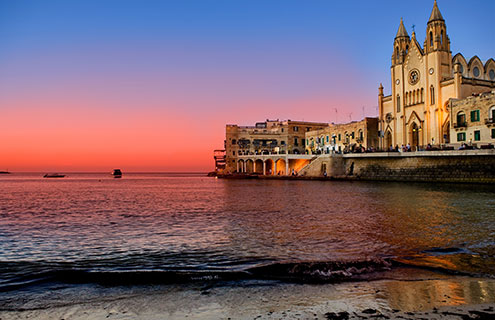We are living in a world where change has become the norm. Consumer needs change, financial products are developed and financial markets continuously evolve and innovate.
We are living in a world where change has become the norm. Consumer needs change, financial products are developed and financial markets continuously evolve and innovate. As financial markets adjust, so too must the regulatory systems which oversee them. Regulation must interface with innovation in a mutual and dynamic relationship in order to enhance the positive regulatory effects on innovation.
This is reflective of the approach of the Malta Financial Services Authority (MFSA), which has been progressively developing as a single financial services regulator since before Malta joined the EU in 2004 and adopted the euro as a currency in 2008.
Malta’s regulatory framework is known internationally to be both robust and adaptable, allowing promoters to innovate and develop new products in a stable, proactive and transparent environment. The regulatory regime is built on an internationally recognised secure and stable regulatory framework for prudential supervision, consumer protection and market surveillance.
Malta’s business environment is characterised by a product-driven jurisdiction, access to decision makers and a recognised ability to adapt to change. All of this is underpinned by a focus on good governance, good risk management and good business practice.
The financial services sector, which represents more than one tenth of Malta’s economy, includes more than 50 banking and payment institutions, a well-established insurance market and a thriving asset management and investment servicing industry.
The capital market infrastructure has also recently been expanded by the addition of a new specialised market for debt securities—the European Wholesale Securities Market (EWSM)—set up as a joint venture between the Irish and Matla Stock Exchanges. Activity in these core areas and in other business sectors such as trust management and pensions has resulted in a convergence in products and distribution systems that is fuelling further synergies and potential for growth.
The insurance market, which in Malta has been regulated since 1981, is no exception. The market has evolved from eight domestically-oriented insurance providers at the time of Malta’s accession to the EU to a complement of more than 60 international life and non-life insurers and reinsurers as well as an expanding captive market over the last 10 years. The sector has an asset base of more than €10 billion and an annual premium income of close to €3 billion.
Malta’s insurance regulatory framework transposes EU directives and is based on two enabling pieces of legislation—the Insurance Business Act (Chapter 403 of the laws of Malta) and the Insurance Intermediaries Act (Chapter 487 of the laws of Malta), which are separate but complimentary pieces of legislation establishing the legal and prudential framework for the regulation of insurance business and insurance intermediaries activities in Malta.
The two laws are reinforced by regulations and rules that strengthen the regulatory and supervisory process.
The framework benefits from related financial services legislation and is further supported by standards and principles established by international organisations.
In the development of its insurance sector, Malta has been dynamic and proactive in being sensitive to market needs in new landscapes through sound and innovative regulation.
As regulators, we appreciate and value the importance of communication and dialogue with stakeholders and this has consistently underpinned our approach in adapting new regulation to keep pace with market developments. Throughout, we have sought to balance innovation with sound institutional development through sustainable regulation. The process is ongoing.
Over the years we have always strived to open up new areas of business while restructuring and updating traditional ones. The legislative framework specifically tailored for captives, whose legal term is affiliated insurance companies, is one such example.
Captive insurance business is regulated under a set of tailor-made rules that take into consideration the current state of the market and possible future developments. The framework carves out and exempts captives from certain requirements under the Insurance Business Act, including reduced timeframes for the application process and reduced regulatory fees.
The establishment of a regulatory regime for protected cell companies (PCCs) is another milestone in the development of Malta’s insurance sector. Indeed, Malta is the only full EU member state to offer PCC legislation. The PCC model can be adopted and is currently used by insurance and reinsurance companies including captives, insurance brokers and insurance managers.
Currently, there are 16 PCCs established in Malta, with more than 20 protected cells being created over recent years.
Key features of PCCs include the segregation of cellular assets and liabilities from core and other cells, lower capital requirements for cells as they share capital with the core since the minimum guarantee fund applies to the PCC as a whole and secondary recourse to core capital by cell creditors in case of insolvency of the cell.
The core and its cells constitute a single legal entity and the cells do not have separate legal personality but constitute distinct and segregated patrimonies, which are ring-fenced from each other.
Through enabling different owners with varying interests to participate in one insurance company through the establishment of cells, the PCC structure is regarded as a risk management tool that provides businesses with a cost-effective alternative to setting up a standalone insurance company.
The PCC model is a classic case of innovative regulation that provides further opportunity for insurers, even more so under the three pillars of Solvency II once this is implemented.
Incorporated cell companies (ICCs) build on the cellular model but unlike cells in PCCs, cells of ICCs have their own legal identity. Accordingly, each incorporated cell set up within an ICC is individually incorporated and assets and liabilities are attributed either to the cell company itself, or to a particular separate cell of the cell company.
This provides the flexibility of incorporated cells being allowed to enter into binding agreements with one another and with the ICC, thereby facilitating the possibility of financial guarantees or reinsurance arrangements between cells as well as between the cells and the ICC, where the core may act as the reinsurer to the fronting cell.
The current challenging economic environment, together with the need to maximise return on capital, has recently triggered a specific market need for an innovative product in a sound regulatory environment to enable the efficient management of risk. Against this background, consultations held with various industry stakeholders, including a number of international experts in the field, led the MFSA to initiate an exercise aimed at evaluating the possibility of introducing appropriate provisions within the legal and regulatory infrastructure.
The outcome of all this was a framework for the establishment and regulation of reinsurance special purpose vehicles (RSPVs) based on the interaction between Malta’s highly developed insurance legislation, the specific provisions of the Securitisation Act and EU regulatory standards. RSPVs, which are a form of insurance securitisation, add to the realm of opportunities that insurers and reinsurers have at their disposal to obtain access to capital resources, in a broader sense than their own shareholders’ funds.
The RSPV Regulations are aligned to the European Insurance and Occupational Pensions Authority’s draft Solvency II advice on level II implementing measures.
The RSPV Regulations continue to complement and expand Malta’s regulatory framework.
Furthermore, the MFSA is also considering the use of PCCs as securitisation vehicles and is currently working on drafting legislation to cater for such structures. Malta’s regulatory framework incorporates re-domiciliation legislation applicable to all types of companies including securitisation vehicles under the Continuance of Companies Regulations and offers a legal framework for domestic and cross-border securitisations under the Securitisation Act (Chapter 484 of the laws of Malta).
Furthermore, Malta offers the possibility for the listing of wholesale securities issued by the RSPV.
A new regulated market, the EWSM, jointly owned by the Irish Stock Exchange and the Malta Stock Exchange, for wholesale fixed income securities was set up, registered and domiciled in Malta in 2012.
The EWSM is approved as an EU regulated market under the Markets in Financial Instruments Directive and is a “Recognised Stock Exchange” within the meaning of the UK Income Tax Act 2007.
The regulatory requirements are available in the Guidelines for Listing and Trading on the EWSM website at www.ewsm.eu.
Regulation is complex, multifaceted and dynamic. Financial markets today are characterised by rapid innovation and an evolving business environment, together with changes in customer needs and profiles. Implementing change in this environment is challenging and the process is ongoing.
Going forward, we will continue to be proactive in further developing the financial sector bearing in mind our duty to continue to ensure that this is done in a prudent and sustainable way.
We will continue to find an appropriate balance between preserving safety and soundness of the system and allowing financial institutions and markets the flexibility to perform their intended functions through fostering sustainable business growth. This is the opportunity of regulatory innovation.





